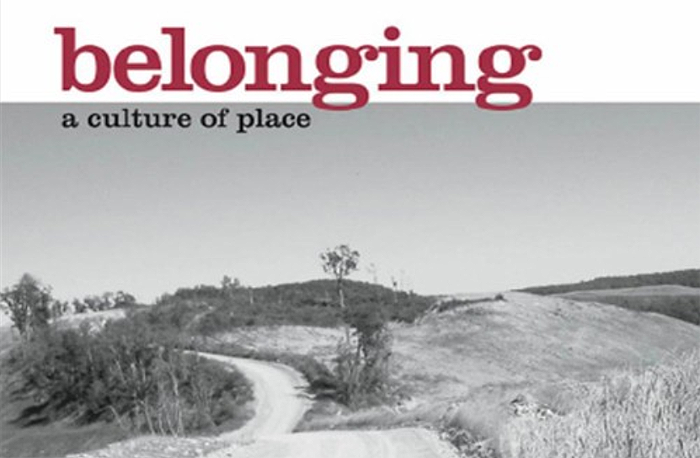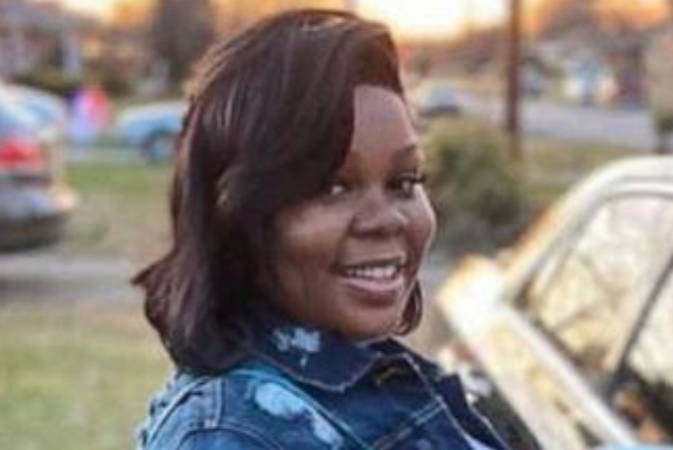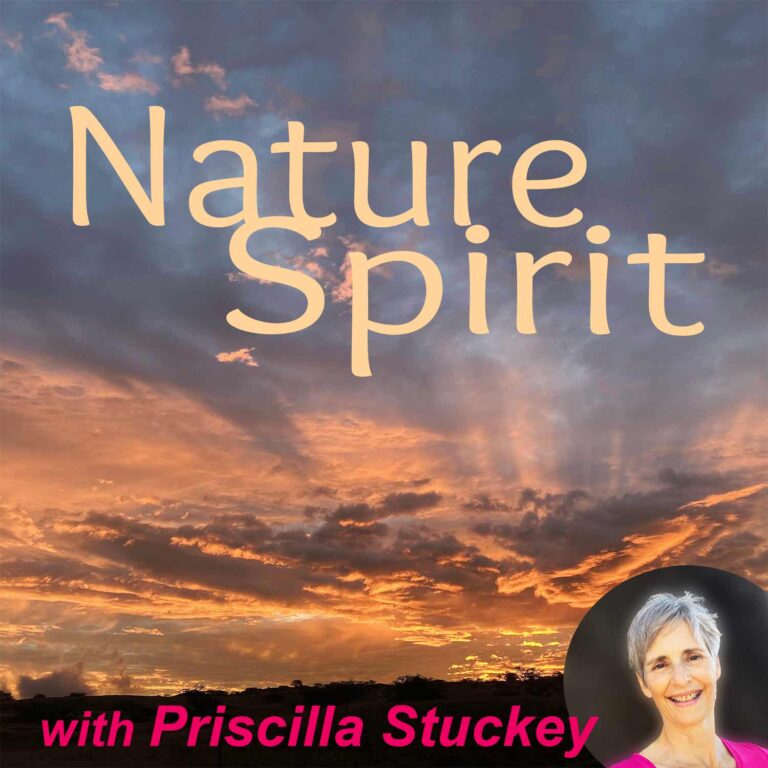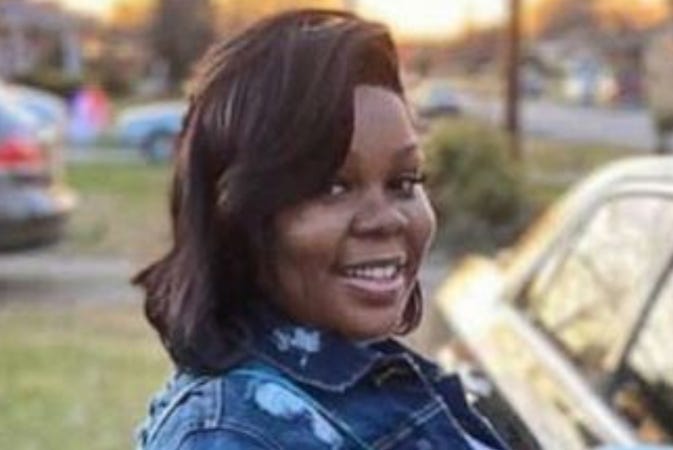A new beginning! I’m converting this blog into a podcast. Listen and share here on my blog site, or subscribe through your favorite platform. Available on Apple podcasts, Spotify, Stitcher, and more. Transcripts will always appear here as blog posts.
Transcript
Hello, friends, and welcome to the first episode of Nature-Spirit.
So, I’ve been dreaming and planning this podcast for over a year, and I’d planned—and even recorded—several different opening episodes. But recent events, with the murder of George Floyd by police and the ongoing protests, are begging for a different kind of episode than any of the ones I’d planned. A more urgent episode. And more heartbroken.
But here’s what hasn’t changed: the message itself. At the heart of it all, the message I will likely talk about over and over again in this podcast is a pretty simple one, and it’s the message that these events pull into sharp focus. The killing of George Floyd and Breonna Taylor and Ahmaud Arbery and so many others brings us right to this point: how, in the face of nature, we are all equal. Utterly equal. And how all the efforts that human beings make to erect walls of inequality are just theaters of arrogance. Vanity. Hubris, with no grounding in reality. In a word, false. Deceitful. All claims to superiority of any kind are lies.
I think of people who know this in their bones. Often, they are people who live close to the earth. One of them was Daddy Jerry, the paternal grandfather of philosopher bell hooks. She writes about him in her essay “Earthbound,” in her 2009 book Belonging: A Culture of Place. Daddy Jerry, she says, was a farmer, a sharecropper. And when she was a little girl, he would take her walking through his neat rows of crops, and he would say things like this: “I’ll tell you a secret little girl. No man can make the sun or the rains come—we can all testify. We can all see that ultimately we all bow down to the forces of nature. Big white boss may think he can outsmart nature but the small farmer know. Earth is our witness.”
 Living close to the earth, bell hooks writes, taught her people that white folks were not gods. White people might control Black people, but they couldn’t control the forces of nature, or the flows of the divine spirit. From nature, that is, Black farmers learned what she calls “an oppositional sensibility.” Nature provided a space of freedom, a constant reminder that white rule was not absolute.
Living close to the earth, bell hooks writes, taught her people that white folks were not gods. White people might control Black people, but they couldn’t control the forces of nature, or the flows of the divine spirit. From nature, that is, Black farmers learned what she calls “an oppositional sensibility.” Nature provided a space of freedom, a constant reminder that white rule was not absolute.
We’ve all heard about the tremendous power that nature holds for healing, but this is a piece of it that we don’t talk about nearly often enough: that nature reveals our fundamental equality. Another way of saying it is that nature exposes fraudulent power. False claims to power, like the illusion that certain groups of people deserve more resources just because of who they are. False understandings of reality, like the lie that some people are naturally superior to others.
The truth of the matter is, we are all equal before nature. Rock-bottom equal. We are all born, we all die. We come here through no conscious choice of our own, and although we may choose to die, we cannot choose not to die. Death is a given. It will come for each of us, no exceptions. Death is the great equalizer. The great democratizer. bell hooks puts it this way: “Ultimately,” she says, “nature rules. That is the great democratic gift the earth offers us—that sweet death to which we all inevitably go—into that final communion. No race,” she continues, “no class, no gender, nothing can keep any of us from dying into that death where we are made one.”
So if we take this great democracy of dying seriously, we can see just how misguided any notions of race really are. Any ideas that some are naturally superior to others.
I’m familiar with those ideas. Intimately familiar. I was steeped in them during my growing-up years, as children in white families usually are. I would be tempted to think this was the heritage of my small town in Ohio, but these ideas are too widespread among white people all over this country to have all originated in the heartland. I remember the prejudices whispered from adults to children, the racist jokes told and laughed at out loud. Most of all, I remember the conviction we held tight-as-truth that whatever we had, we had earned through our own efforts. Others, the “less fortunate,” we called them, just weren’t as hardworking; they weren’t as motivated.
And because of white privilege, we could think and say these things and at the same time consider ourselves well-meaning people. We might feel a teensy bit guilty about all these unloving thoughts, and in the best of all worlds we really would try to be more charitable to our darker skinned neighbors, but let’s face it (we would say), this was just reality. People had been looking down on dark skin since forever (we thought), so human nature was unlikely to change at this late date.
As a historian of ideas, I can say, with full backing of the sources, that this idea itself is racist and a product of racism. Because if you really study the history, the idea of race is very recent in Western thought—probably less than a thousand years old. Farther back than that, say, in the ancient Mediterranean world, there is no evidence at all that people preferred light skin just because it was light. In the Roman empire there certainly was a lot of slavery, but it had nothing to do with skin color; it was more about who got captured in war. Yes, the Romans persecuted certain groups of people—Jewish people above all—but prejudice at that time tended to follow differences of culture and religion, not skin tone. It took until the Middle Ages for Europeans to develop their concept of whiteness. But once they had come to think of themselves as white, they used whiteness as a weapon, during all the colonial centuries that followed, against any people they wished to invade or plunder or conquer. So, while it’s true that human beings have probably been assigning status to one another since forever, doing it on the basis of skin color, at least in the Western world, is actually very, very recent.
Which is to say, even our racism isn’t “natural,” in the sense of being baked in to us. It really is true: we have to be taught to hate.
So I’ve come to think of white racism in this country as heart disease. We white people have a heart problem. The problem of closed hearts. Fearful and stony hearts. Hearts that are afraid of our Black neighbors. Afraid of people with different beliefs and customs. Afraid of losing privilege. Sociologists tell us that all this fear has to do with white people coming to realize that we’ll soon be a minority in this country. So we might look at the desperate cruelties and clinging to power of the current government as the thrashings of a dying system, the death throes of white supremacy. I hope with all my heart that this is true and that what we’re experiencing, right now, are the birth pangs of a new and more just society. And I do believe more than ever that a new system is possible—and that we do have the capacity to choose it. That so many thousands of white people are marching in the streets on behalf of black lives gives me tremendous hope. Perhaps we have begun to address our fear.
Because it is up to us to address it—within ourselves and among ourselves. Black people cannot solve racism because it is not their problem. It is white people who dreamed up the lie that whiteness is superior, and it is white people who will have to undo this lie—in ourselves and our families, in schools and offices and governments, in every institution we’re a part of. Racism is our problem, and it is a problem of being out of touch with reality. Out of touch with the real powers, that is, the powers of nature.
For, as Daddy Jerry knew, all of us bow down to nature’s forces. None of us can control the ebb and flow of tides or the swell of the clouds or even the surging of life and death within our own bodies. We are born from the Earth, and there we will return, every one of us. In this great democracy of dying we are all equal. In light of Earth’s ultimate power, we are utterly equal.
Nature’s power will unmask our lies. As Daddy Jerry said, “Earth is our witness.”
In Memory of Breonna Taylor, 1993–2020, who would have been 27 today

For digging deeper
No officers have been charged in the death of Breonna Taylor. Find more information and how to help at JusticeforBreonna.org.
For more on the concept of whiteness and how it solidified in Europe during the Middle Ages, especially the thirteenth century, see this blog post by Euromedievalist Geraldine Heng, who wrote The Invention of Race in the European Middle Ages (Cambridge: Cambridge Univ. Press, 2019). Other researchers say that the concept of race is even more recent, dating it to the modern period.
bell hooks’s essay “Earthbound: On Solid Ground” appears in Belonging: A Culture of Place (New York: Routledge, 2009), 116–20. Read the whole book. Her chapter “Returning to the Wound” reflects on fellow Kentuckian Wendell Berry’s 1968 book on racism, The Hidden Wound.
For a ton of antiracism resources—books for children, books for adults, podcasts to subscribe to, places to donate—see “Anti-Racism Resources,” a google doc compiled by Sarah Sophie Flicker and Alyssa Klein.
If you’ve never read about the “knapsack of privilege,” check out Peggy McIntosh’s list of 50 everyday benefits that white people carry around in this invisible knapsack. Available to download here.

















Thanks so much for sending and how great is it that you have now started podcasting. It was especially nice to hear your thoughts today while so many people are marching to demand equality. I too, am hopeful that this time can be different and we are entering into a new era where there can be more justice and equality for all.
Thanks for the good wishes, Michael! Never in the history of this country have so many white people marched on behalf of Black lives. This is such good news—and such a potent sign of how the country has changed in the fifty years since the civil rights movement, when only a tiny minority of white people dared to march with Black people. I am so heartened by this change. It doesn’t end racism and white supremacy, but it sets a foundation that will help the country move toward dismantling them.
Oh Priscilla, When I received your blog post I almost read it right then and there but waited to listen to you. I am so glad I did. I so appreciated hearing your powerful words in these days of real adjustment. Thank you my friend. There is much in these days to witness and I was deeply touched by Daddy Jerry’s words of “The earth will witness”. Thank you Thank you and I look forward to listening to your voice into these days. Come back.
Thank you so much for your good words, Kate. Yes, the Earth shows us our fundamental equality, and the Earth is a powerful witness! Lots of love to you!